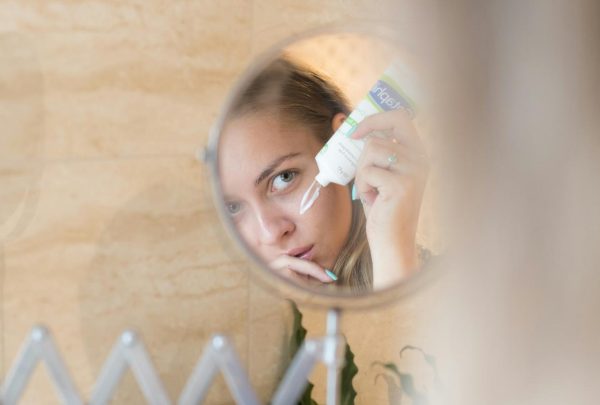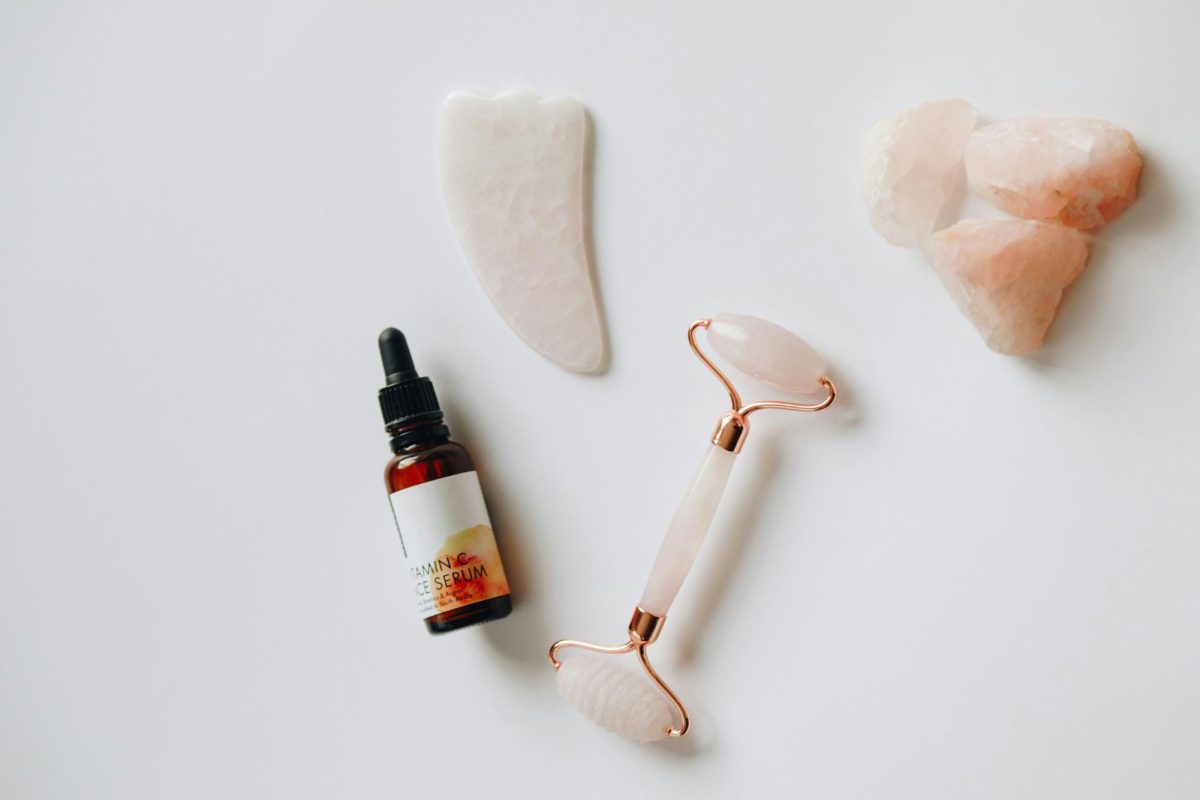Every Sunday, before the school week begins, I take a bath with Japanese salts and a hair mask. It’s a routine that helps me prepare for another eventful week, jam packed with assignments, music lessons, and debate practice. To me, it’s a form of physical self-care.
However, self-care goes far beyond our physical well-being. In fact, the very idea of self-care dates back to Socrates, with his philosophies centering around care for the soul.
These early ideas come with their critics, who call the practice of caring for oneself selfish. In response, political theorist Will Tilleczek writes that critics confuse “Socratic self-care, which is a practice of cultivating virtue in the soul, with self-interest driven by one’s appetites or desires.” His idea was that caring for oneself will inherently help you and others around you.
But this ancient virtue has experienced a major shift.
In the wake of the global pandemic, the self-care movement was a response to rising anxiety and stress levels. This has been a widespread issue, with the World Health Organization dubbing stress as the “Health Epidemic of the 21st Century.” In fact, stress is estimated to cost the U.S. economy over $300 billion per year.
In response, we see the rise of mental health awareness – from government programs, to days off, to posters on bridges. I’ll admit, much of it is necessary and good.
In tandem with this rise, the global personal development market, centered around self improvement and wellbeing, has risen to prominence over the past two decades. The market was valued at $43.77 billion in 2022, and is anticipated to grow at a compound annual rate of 5.5% between 2023 to 2030. It includes self-care courses, workshops, books and more, with a heightened focus on the betterment of oneself and others around them.
But what’s worrying is the social media interpretation of self-care.
A number of so-called mental “self-care” trends are becoming popularized, especially on TikTok. One of these trends is ‘bed-rotting‘, which is when an individual stays in bed all day, going against productivity to refresh themselves. However, experts say that this trend may actually further feelings of depression and encourage avoidance, leading to anxiety – going against the very symptom that the trend aims to help.
The concept of ‘mental health days’ is also on the rise, which 12 states have already classified as an excused absence. It seems innocent enough – taking a break every once in a while to rest and recharge. But it can quickly spiral, with an individual continuing to take more and more time off to avoid work or undesirable situations.
Everything is good in moderation, but the reality is that trends like these can lead to the targeted problem becoming worse.
And it’s not just the trends; it’s the apps themselves, too. Instagram was surveyed to be the most detrimental app for mental health by the Royal Society for Public Health. Chief Executive Shirley Cramer commented that Instagram and other apps like it are “very image-focused…they may be driving feelings of inadequacy and anxiety in young people.” It’s ironic — the apps that these “self-care” trends are born from are among some of the worst apps for one’s mental health and individual perception.
But besides the mental aspect of self-care, there is also the physical side, including things like my weekly bath or a simple skincare routine. This, too, has been tainted by social media.
The physical aspect of self-care has experienced rapid growth. The global skincare market alone was valued at $109.71 billion in 2023, and is projected to grow to $167.22 billion by 2030. Skincare is widely regarded as a form of physical self-care – a routine that people (like myself) indulge in. Another example is the global hair care market, estimated at $99.53 billion in 2023, and projected to grow to $147.49 billion by 2030.
These markets are on an upwards spiral for many reasons. According to Forbes, it is in part because of brand lifestyle advertising. Companies are adamant on establishing a connection between products and the facade of self-care, telling us that buying their product will allow us to reach our ‘inner zen.’ Every product on the market will claim to be a little miracle, solving your problems while granting you mental stability.
Take the Glow Recipe Toner – a popular product sold in Sephora, a giant makeup retailer. In its description, it tells you that you’ll wake up with the “toned skin of your dreams.” Tools like Sephora’s Jade Roller go so far as to say that it will “bring peace and balancing energy to the skin.”

It’s a marketing scheme – and it’s working. Especially on TikTok. The app hit 1.5 billion users in 2023, so its massive audience base makes it the perfect medium to promote trendy products, often selling viewers the perception of a specific lifestyle as promised by the product. Because of this, TikTok is great for brands, with a shocking 18% of marketers currently using TikTok for branding purposes.
I watch a lot of TikToks myself – videos like “GRWM” (get ready with me) or “Sunday Reset,” routines under the umbrella of self-care. And I can confidently say that most of them have over five steps, with an array of different ‘holy grail’ products, whether it be creams for your face or candles for the aesthetic.
What’s strange is that it all seems so necessary. You need a new face mask, or you just have to try the new fragrance.
And surprisingly, this generated necessity works. 34% of TikTok users have purchased a product as a result of an influencer – myself being one of them.
That’s a large number. One of the main reasons for this consumption of promoted products is simply trust. Social media influencers herald a sense of trust between them and their viewers. 37% of consumers ages 18-80 trusted social media influencers over brands in 2022.
This kind of trust especially affects younger audiences.
90% of children ages 13-17 have used social media, and children are proven to be more prone to influence. So, trust in influencers leads audiences, especially younger ones, to believe that a promoted product will solve their problems. It will clear up their skin, or de-frizz their hair, ultimately bringing them peace and happiness (spoiler: that’s not how it works).
This is why we hear of young ‘tweens’ wanting Drunk Elephant skincare – which contains retinol, catered to aging skin – not dolls or games; because influencers are promoting it as a product that everyone needs.
More recently, there’s the Sephora phenomenon, with workers and older shoppers noting the dramatic increase of young girls in the store. Again, think back to influencers. We are seeing the effect of self-care branding in real time.
I understand that the fine line between self-care and unhealthy habits, whether they are mental or physical, is hard to recognize. But what I do know is this: self-care means something different to everyone. It’s better to have a routine because it’s beneficial for you, not because you see that someone else has one.
So maybe you don’t need that face cream after all.
Self-care goes far beyond our physical well-being. In fact, the very idea of self-care dates back to Socrates, with his philosophies centering around care for the soul.

